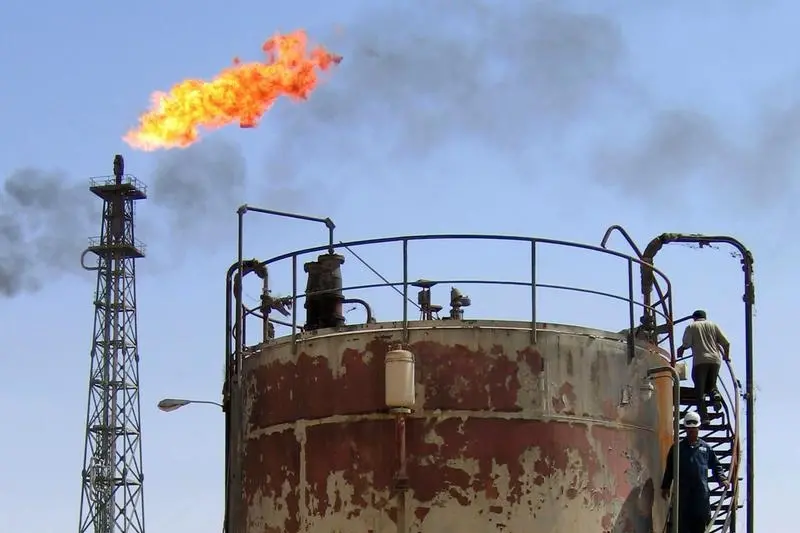PHOTO
GENEVA - Iraq has agreed to resume payments from its oil revenues to compensate fully $4.6 billion still owed to Kuwait for destruction of its oil fields and facilities during the 1990-91 Gulf War, the United Nations said on Tuesday.
Payments from the U.N. fund, which were suspended since October 2014 due to security and budgetary challenges faced by Iraq in its fight against Islamic State - will begin with 0.5 percent of its oil proceeds in 2018 and escalate annually until the end of 2021, the U.N. Compensation Commission (UNCC) said.
"Based on oil price and export projections, this would result in payment in full of the outstanding claim award," the UNCC said in a statement issued in Geneva.
The damages claim by the Kuwait Petroleum Corporation (KPC) was the largest approved by the Geneva-based UNCC, set up by the U.N. Security Council in 1991.
In 2000, the UNCC awarded $14.7 billion to Kuwait for oil production and sales losses incurred by the KPC, $4.6 billion of which is Iraq's last debt.
Kuwait accepted Baghdad's proposal, which was also endorsed by the UNCC's Governing Council on Tuesday in a special session of the body composed of the Security Council's 15 members, the statement said.
Under the four-year agreement, the percentage of proceeds from Iraqi oil and petroleum products paid into the U.N. coffers for payment to Kuwait will rise to 1.5 percent in 2019 and 3 percent in both 2020 and 2021, Leah Kraft, UNCC legal officer, told Reuters.
The UNCC has awarded $52.4 billion to some 1.5 million successful claimants for damages to states, corporations and individuals due to Iraq's invasion and seven-month occupation of Kuwait under former president Saddam Hussein.
Iraqi Prime Minister Haider al-Abadi said on Tuesday that Islamic State had been defeated from a military perspective but he would only declare final victory after IS militants were routed in the desert.
(Reporting by Stephanie Nebehay, editing by Tom Miles) ((Stephanie.Nebehay@thomsonreuters.com; +41 58 306 2161; Reuters Messaging: stephanie.nebehay.thomsonreuters.com@reuters.net; twitter @StephNebehay))
Payments from the U.N. fund, which were suspended since October 2014 due to security and budgetary challenges faced by Iraq in its fight against Islamic State - will begin with 0.5 percent of its oil proceeds in 2018 and escalate annually until the end of 2021, the U.N. Compensation Commission (UNCC) said.
"Based on oil price and export projections, this would result in payment in full of the outstanding claim award," the UNCC said in a statement issued in Geneva.
The damages claim by the Kuwait Petroleum Corporation (KPC) was the largest approved by the Geneva-based UNCC, set up by the U.N. Security Council in 1991.
In 2000, the UNCC awarded $14.7 billion to Kuwait for oil production and sales losses incurred by the KPC, $4.6 billion of which is Iraq's last debt.
Kuwait accepted Baghdad's proposal, which was also endorsed by the UNCC's Governing Council on Tuesday in a special session of the body composed of the Security Council's 15 members, the statement said.
Under the four-year agreement, the percentage of proceeds from Iraqi oil and petroleum products paid into the U.N. coffers for payment to Kuwait will rise to 1.5 percent in 2019 and 3 percent in both 2020 and 2021, Leah Kraft, UNCC legal officer, told Reuters.
The UNCC has awarded $52.4 billion to some 1.5 million successful claimants for damages to states, corporations and individuals due to Iraq's invasion and seven-month occupation of Kuwait under former president Saddam Hussein.
Iraqi Prime Minister Haider al-Abadi said on Tuesday that Islamic State had been defeated from a military perspective but he would only declare final victory after IS militants were routed in the desert.
(Reporting by Stephanie Nebehay, editing by Tom Miles) ((Stephanie.Nebehay@thomsonreuters.com; +41 58 306 2161; Reuters Messaging: stephanie.nebehay.thomsonreuters.com@reuters.net; twitter @StephNebehay))





















